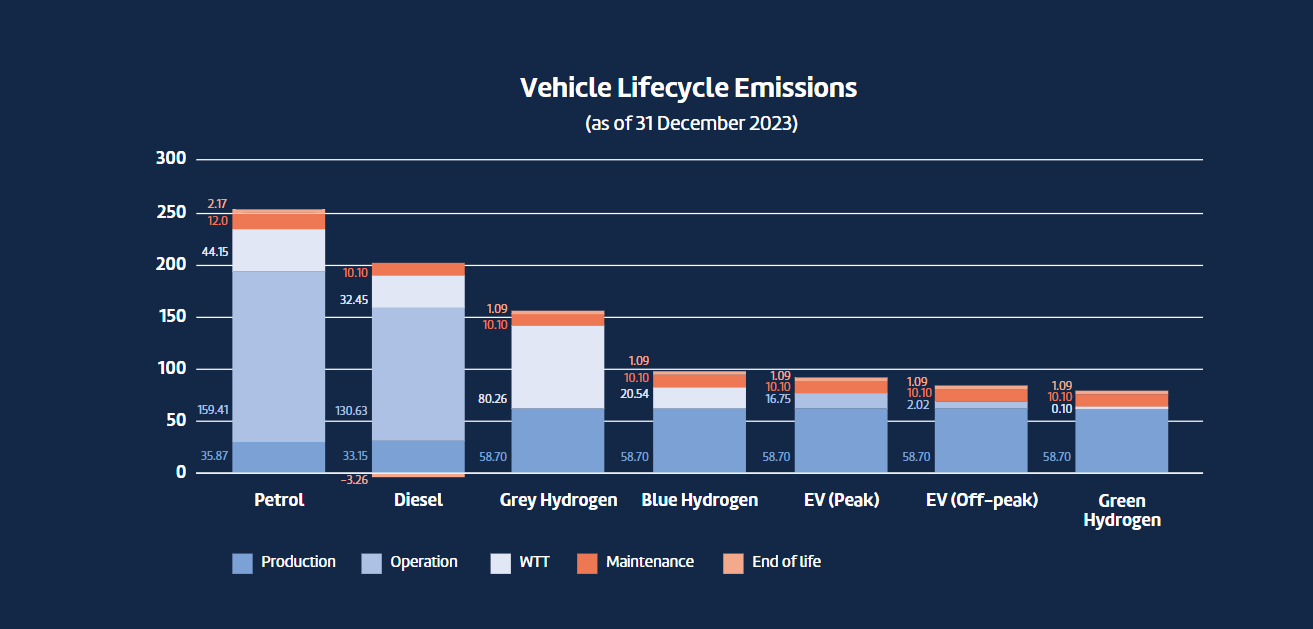Start any discussion about electric vehicles and you’ll quickly see opinions divide. Driving has become such a normal part of daily life for many, so the idea of swapping from fuel to batteries inevitably sparks big views.
But is Guernsey really ready to make the leap? Transport has been identified as the biggest contributor to Guernsey’s carbon emissions by the States of Guernsey and its advisors. While there may be debate about just how big the impact is, one thing is clear: burning fossil-fuels affects the air we all breathe – so it's worth digging deeper into this important conversation.
Is vehicle charging responsible for power station smoke?
You might see black smoke issuing from the power station chimneys – especially in the morning. Usually this happens when the fossil-fuel engines start up from cold after the night’s shutdown, which can cause a burst of dark smoke for a few minutes as they fire up.
Sometimes these start-up sessions are followed up with photos on social media and comments suggesting its electric vehicles that are responsible for the smoke.
In fact, most people who charge at home set their cars to charge overnight to benefit from their overnight cheap times. The added benefit is that between 11pm and 5am, it’s also the cleanest time to charge your vehicle as you can use 100% low carbon electricity from the European grid.
If you rely on public charge points, you may be charging during peak hours, especially in winter when the island leans more heavily on fossil-fuels for electricity. But just like topping up with petrol, you won’t always need to fill up your battery.
How much electricity you use really comes down to how much you drive.
Forget electric are hydrogen vehicles the real answer?
Hydrogen is likely to play a role in cutting carbon emissions, especially for things that are hard to electrify – like heavy-duty trucks and construction machinery.
For example, long-distance heavy goods vehicles could be a great fit for hydrogen.
But the debate gets deeper when we start talking about types of hydrogen. As it’s a complicated topic, here’s a quick breakdown:
- Grey Hydrogen is made from natural gas (a fossil fuel) and releases carbon into the air. It’s the cheapest and most common type of hydrogen used today, but isn’t a sustainable option.
- Blue Hydrogen also comes from natural gas, but this time the carbon is captured and stored instead of being released. It’s seen as a stepping stone while cleaner options scale up.
- Green Hydrogen is the cleanest option as it’s made by splitting water using 100% renewable electrolysis. No carbon emissions are released while this happens, but it’s expensive and currently has limited infrastructure.
If the goal is to drive a greener transport movement, it makes sense to compare how much carbon each creates over its whole lifetime, from day one to the scrapyard.
What are lifecycle emissions?

Lifecycle emissions are the total amount of greenhouse gases released during any product’s entire life – from making it, using it, and eventually getting rid of it.
The above graph shows how electric vehicles in Guernsey stack up against other options based on the grams of carbon dioxide equivalent produced per kilometre. This includes emissions at each stage of the vehicle’s life:
- Making the vehicle (Production)
- Driving it (Operation)
- Producing and delivering the fuel or electricity (Well-to-tank)
- Keeping it running (Maintenance)
- Disposing of or recycling it (End-of-life)
The best time to charge an electric vehicle is off-peak between 11pm and 5am when you can fill up on 100% low-carbon electricity imported from the European grid.
Are there enough charging options in guernsey?
Around one in five electric vehicles will likely rely on public charging, according to recent estimates. But that’s still enough to show that we need to keep building up our charging network.
On a small island like Guernsey, it raises a key question; Do we spread lots of chargers across the island, or focus on building a few well-equipped charging hubs?
Most EV drivers in Guernsey only need to charge their car once or twice a week, and just like with petrol or diesel cars, there’s often no need to top up 100% each time.
That means even though public chargers are limited for now, there are still options that support everyday driving if home charging isn’t an option.
Some people worry that not having a charger at home means they can’t go electric. But EVs are more like petrol cars than phones in that way: if you don’t fill up your tank with fuel everyday now, you won’t need to charge everyday with an EV either.
We don't have fuel pumps in our back garden either.
It’s a habit shift that Guernsey’s charging network will develop alongside.
Are EV’s too expensive to buy?
If you’re keen to buy an electric vehicle, one option is to find a provider who offers discounted lending on green solutions such as electric vehicles.
The good news is that EVs are now being built from scratch, not just adapted from petrol car designs. This means production costs are coming down.
Car manufacturers also want to stay competitive, so it’s in their interests to make electric vehicles more accessible to secure a share of tomorrow’s car market. This will help balance supply and demand in your favour.
Plus, electric car's as we know them today, will likely become tomorrow's average car, as we gradually shift towards electrification. And it’s fair to say that once you’re able to own an EV, it’ll cost you far less to run.
Want to find out more?
Compare the cost to run vehicles in Guernsey










